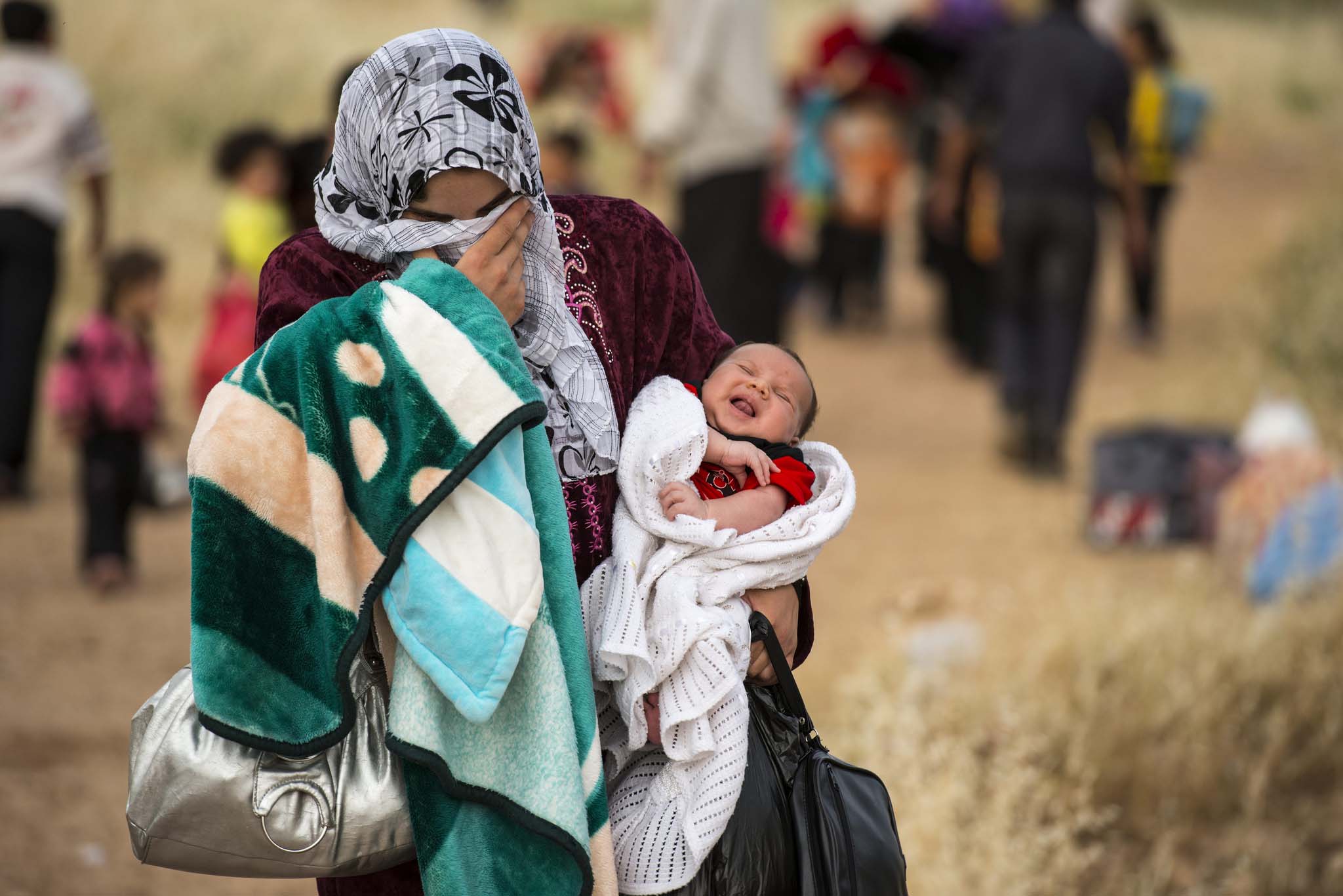
As the humanitarian situation in Syria deteriorates, several charities in Qatar have been stepping up aid efforts to help those inside the war-torn country, as well as people who have fled.
However, many groups are contending with challenges when it comes to delivering aid, saying some parts of Syria are too besieged to enter, and other areas are difficult to reach due to security risks.
According to QRC, there have been 285 documented cases of targeting medical facilities in Syria, including the bombing of the QRC hospital in Tell Abyad in 2014 and Zorba clinic in 2015.
So far, 657 health professionals have died in Syria, including a QRC surgeon in Tabaka area and an observer on a vaccination campaign in Idlib.
Amid the hazards, around 12.2 million people in Syria are still in need of humanitarian assistance, including more than 5.6 million children.
That’s a twelve-fold increase since the country’s civil war began in 2011, according to the United Nations Office for Coordination of Humanitarian Affairs (OCHA).
This week, towns such as Medaya were highlighted by international groups who accused the government and armed groups of using starvation as a weapon of war.
In a statement, Philip Luther, Middle East and North Africa Director at Amnesty International, said:
“By continuing to impose sieges on civilian areas and only sporadically allowing in aid at their whim they are fueling a humanitarian crisis and toying with the lives of hundreds of thousands of people.”
What’s being done
Syria was one of the main focuses of this year’s winter campaign held by most Qatar charities to provide food, clothes, electric heaters, tarpaulins, blankets and heating oil to displaced Syrians. Details and information on how to donate can be found here.
Charities are continuing to run a number of other campaigns related to Syrians in need. Here are details of a handful of them, with some information on how to help:
Eid Charity
This week, Eid Charity announced that a Qatari man has offered to take care of the expenses of 1,000 orphans living inside Syria, to the tune of some QR150,000 a month.
Khaled Al Hajri, executive director of foreign projects, said in the statement that the charity had a list of 2,500 Syrian orphans who were in need of emergency assistance before the donor stepped in.
Eid Charity currently provides for 4,323 Syrian orphans, including 2,045 inside Syria and 2,278 who have been displaced and now live in Turkey, Jordan and Lebanon, according to the statement.

Al Hajri said that providing food and necessities for one orphan inside Syria costs around QR150 per month, while helping a displaced Syrian orphan in neighboring countries costs QR250.
The donation covers food, clothes, healthcare and education until the child reaches the age of 15 years old, and donors can chose to continue donations longer if they wish.
The charity is also raising funds to build 3,000 caravans to shelter Syrian refugees. Each caravan includes two rooms, one bathroom, a kitchen, water, electricity and a cement floor.
Donations can be made online here. For more information, call 77073030.
Qatar Red Crescent
In a statement sent to Doha News, Qatar Red Crescent (QRC) said that the humanitarian situation in Syria is one of the most complicated it has ever seen.
QRC has field offices scattered across Syria, including 400 field workers who also coordinate with local organizations for the best response to those in need.

The charity has so far built 100 clay houses to shelter 100 displaced Syrians in Idlib, as they are more convenient than tents and caravans.
In a statement, QRC explained that the homes can be built at lower costs by using local materials and workers. They’re also safer and provide warmth in the winter and cold in the summer.
QRC is now working on building 500 more clay houses, as there is dire need for shelter especially during cold winter days.
The charity is also working to support domestic farming to regularly provide food and income for families, winter clothes factories that provide jobs for women as well as warm clothes for those who need them.
Those who want to help with these efforts can donate here.
Qatar Charity
As part of Qatar Charity’s winter campaign to help Syrian refugees, QC has so far distributed 2,000 food baskets in the Al Rihanniya near the Turkish-Syrian border.

Each basket is enough to provide food supplies for a Syrian family of five for one month, QC said in a statement on its website yesterday.
It also provided a large number of winter supplies including 50,000 blankets, 50,000 heaters that can also be used as stoves, 30,000 jackets and 1,000 tents for displaced Syrians inside Syria and living in south of Turkey.
QC is taking donations online here.
RAF
Meanwhile, RAF launched a new aid project yesterday called “immediate response.”
It plans to spend half a million riyals to provide relief to 550,000 Syrians in areas like Deraa, the suburbs of Damascus and Quneitra, RAF said in a statement on Facebook.

The project includes providing diesel to operate hospitals, as well as medical supplies that would help 29,000 Syrians who live in the area.
The charity is also working to maintain wells to provide clean drinking water for tens of thousands of people who have been forced to drink swamp water, which leads to the spread of disease.
More on RAF donations can be found here.
MOFA weighs in
Over the past five years, Qatar has been sending millions of dollars worth of aid to Syrians in need, as well as speaking out against the leadership of President Bashar Al Assad.
Amid the worsening circumstances, Qatar’s Foreign Minister Dr. Khaled Al Attiyah on Friday sent messages to UN officials condemning international silence and a lack of accountability for the suffering of people especially in besieged towns like Zabadani, Madaya, Bugen and Bludan, QNA reports.

In those towns, lack of access to food had many people eating water and salt, weeds and even cats.
In his messages, Al Attiyah accused the Syrian government and its “pro-militias” of using the policy of starvation as a weapon by imposing a tight siege on these town to “give a choice to its population between hunger or kneeling to a regime that continues to kill its people.”
He added that preventing essential humanitarian aid from entering these towns had led to the deaths of more than 30 people due to hunger and malnutrition, in addition to causing severe suffering to around 40,000 civilians.
He expressed hope that necessary measures would be taken to ensure the immediate and regular delivery of emergency humanitarian aid to civilians in Madaya and all besieged areas.
QRC said that it managed to deliver food supplies inside Madaya yesterday.
Thoughts?







